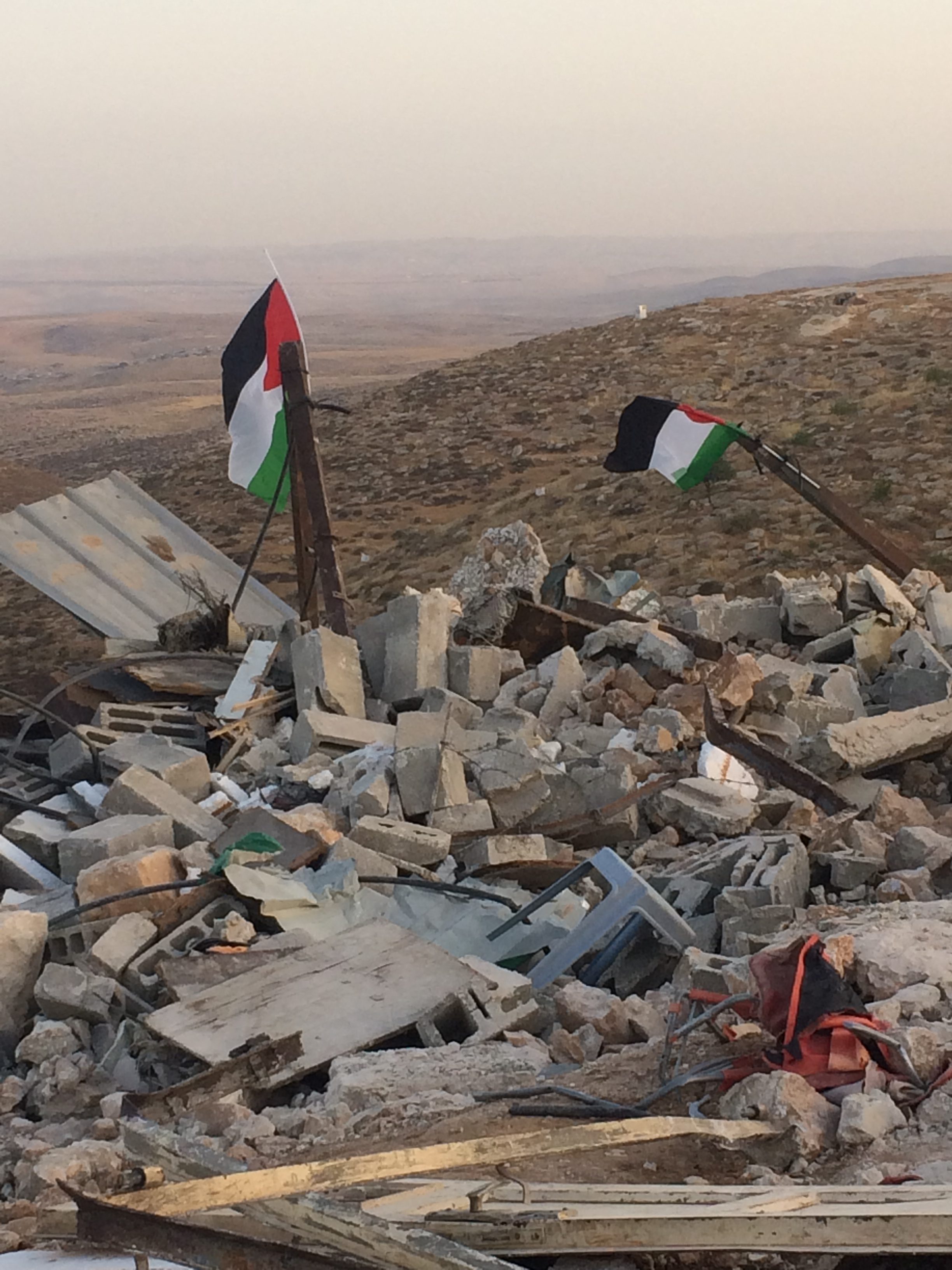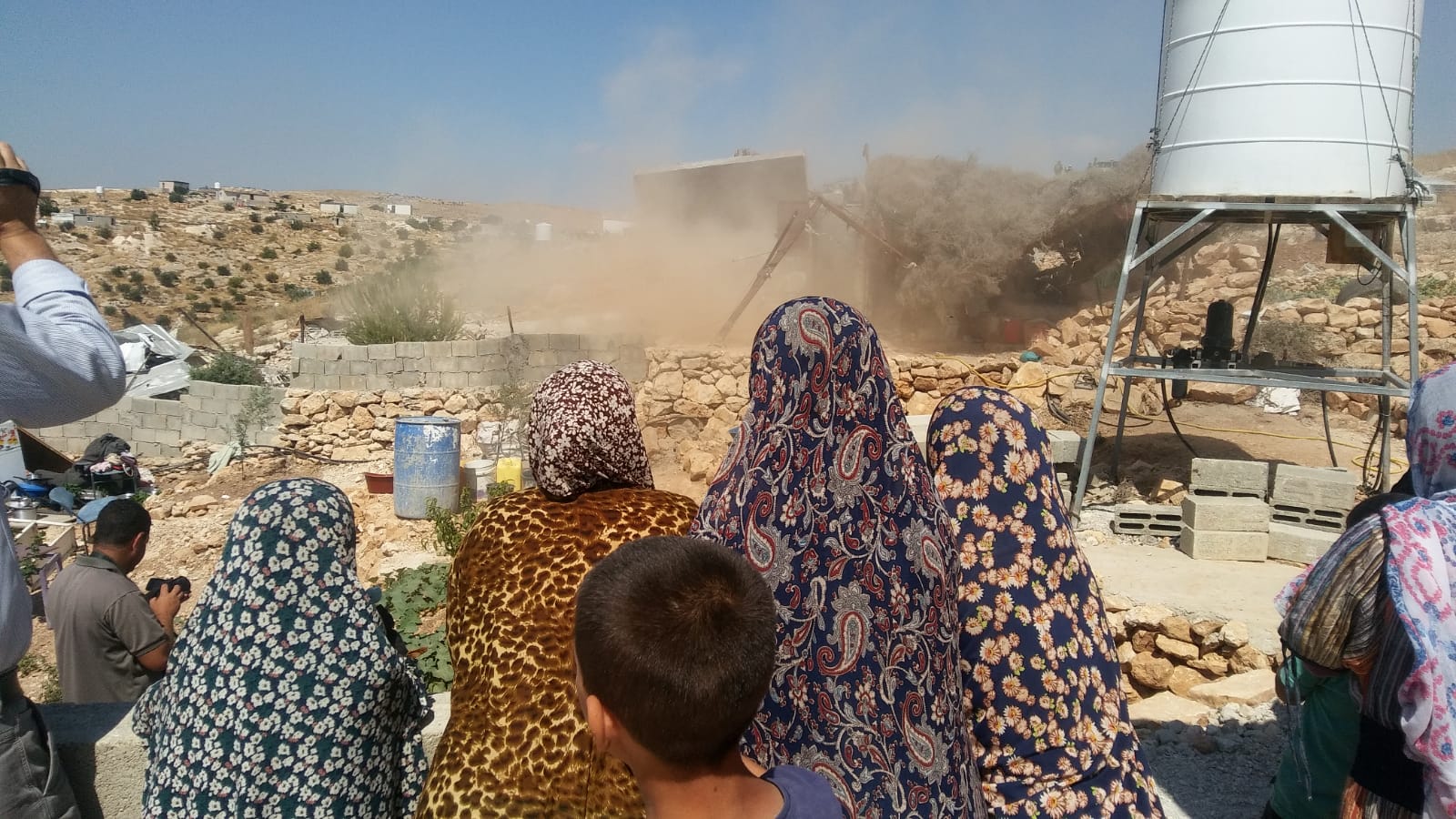Tag: South Hebron Hills
-

Five days after demolition: Picking up the pieces
June 21, 2019 | International Solidarity Movement | South Hebron Hills, occupied Palestine Palestinian flags fluttered over the rubble of Mohammad al Dababsh home in the South Hebron Hills yesterday as local activists helped the family put up a temporary shelter. Pots and pans lay scattered amongst bricks, metal and dust – the only remnants…
-

Villagers live in fear and uncertainty as four more homes demolished in South Hebron Hills
June 18, 2019 | International Solidarity Movement | South Hebron Hills, occupied Palestine Occupation forces went on a demolition spree yesterday in the South Hebron Hills, bulldozing the homes of four families in two villages. A convoy of border police, Israeli Civil Administration officials, soldiers and two JCB bulldozers arrived in the village of Khalet…
-
South Hebron Hills: Settlers wielding sticks launch night attack on Palestinian home
June 17, 2019 | International Solidarity Movement | South Hebron Hills, occupied Palestine Settlers bearing sticks from the notorious Havat Maon illegal outpost tried to attack a Palestinian home two nights ago in the village of At-Tuwani, South Hebron Hills – the latest in a stream of attacks against the same home. The Zionist attackers…
